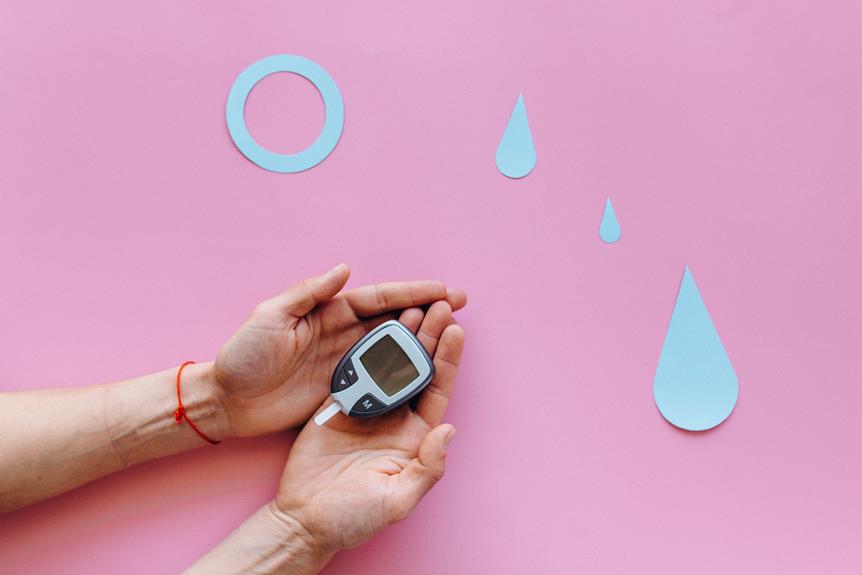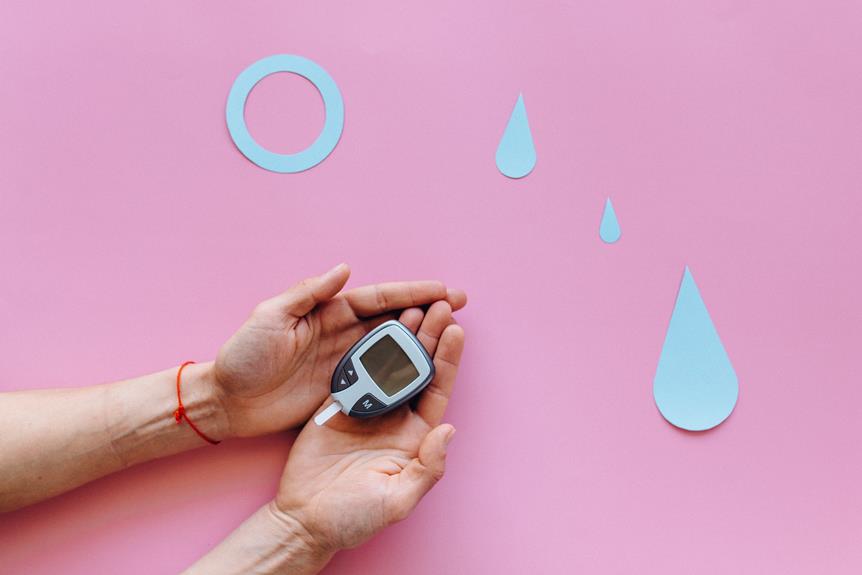Insulin is a vital hormone that regulates blood sugar levels in the body, providing energy to cells. The pancreas produces insulin, which helps cells absorb glucose from the bloodstream.
Different types of insulin exist, each with unique characteristics. Proper administration and management of insulin are crucial for individuals with diabetes to maintain optimal health.
The significance of insulin and its various aspects will be explored in this article.
Key Takeaways
Insulin, a crucial hormone for regulating blood sugar levels, is produced in the pancreas and facilitates the transportation of glucose into cells for energy. Various types of insulin exist, each with different onset and duration of action. Proper administration of insulin is essential for effectively managing diabetes. Understanding the role, production, and administration of insulin empowers individuals to better control their blood sugar levels, leading to improved overall health and well-being.
Role of Insulin in Blood Sugar Regulation
Insulin plays a crucial role in the regulation of blood sugar levels by facilitating the uptake and storage of glucose in cells. When blood glucose levels rise, insulin is released by the pancreas to signal cells to take in glucose from the bloodstream. This process allows the cells to use glucose as a source of energy or convert it into glycogen for storage.
Insulin therapy is commonly used to manage diabetes, a condition characterized by insufficient insulin production or impaired insulin function. Insulin resistance, on the other hand, occurs when cells become less responsive to insulin, leading to elevated blood sugar levels.
Understanding the role of insulin in blood sugar regulation is essential for individuals seeking freedom from the complications associated with diabetes. Transitioning into the subsequent section, let’s explore the production and function of insulin.
Production and Function of Insulin
Facilitating the uptake and storage of glucose in cells, insulin plays a pivotal role in regulating blood sugar levels. Insulin synthesis occurs in the beta cells of the pancreas, where the proinsulin precursor is converted into active insulin. This process involves the cleavage of the C-peptide from proinsulin, resulting in the formation of insulin and C-peptide.
Once synthesized, insulin is released into the bloodstream in response to increased blood glucose levels. Insulin signaling begins when insulin binds to its receptor on the surface of target cells, activating a cascade of intracellular events. This signaling pathway stimulates the uptake of glucose from the bloodstream into cells, promotes glycogen synthesis, and inhibits glucose production in the liver.
Types of Insulin and Their Differences
There are various types of insulin, each with its own distinct characteristics and effects on blood sugar levels. Insulin dosage is an important factor in managing diabetes, as it helps regulate blood glucose levels.
Different types of insulin have different durations of action, which affects how long they remain active in the body. Rapid-acting insulins, such as insulin lispro and insulin aspart, start working within 15 minutes and peak within 1-2 hours. Short-acting insulins, like regular insulin, take about 30 minutes to start working and peak within 2-3 hours.
Intermediate-acting insulins, such as NPH insulin, take longer to start working but have a longer duration of action. Long-acting insulins, like insulin glargine and insulin detemir, have a slow onset and provide a steady, basal level of insulin throughout the day.
It’s important to work with a healthcare provider to determine the right type and dosage of insulin based on individual needs and factors such as insulin resistance.
Proper Administration of Insulin
To properly administer insulin, individuals should carefully follow the instructions provided by their healthcare provider. Insulin dosage and injection techniques are critical aspects of administering insulin effectively.
The dosage of insulin varies depending on factors such as blood glucose levels, individual needs, and the type of insulin being used. Healthcare providers will determine the appropriate dosage and provide instructions on how to measure and administer it.
Insulin injections should be given subcutaneously, which means injecting the insulin into the fatty tissue just below the skin. It’s important to rotate injection sites to prevent lipohypertrophy, a condition where fat deposits develop at the injection site.
Proper administration of insulin is essential for maintaining blood glucose control and preventing complications associated with diabetes.
Managing Diabetes With Insulin
Individuals manage diabetes with insulin by carefully monitoring their blood glucose levels and administering the appropriate dosage of insulin as prescribed by their healthcare provider. Insulin therapy is a crucial aspect of diabetes management, as it helps regulate blood sugar levels and prevent long-term complications.
The dosage of insulin varies depending on factors such as the individual’s age, weight, activity level, and overall health. It’s essential to work closely with a healthcare provider to determine the correct insulin dosage, as too little insulin can lead to high blood sugar levels, while too much insulin can cause low blood sugar levels.
Regular blood glucose monitoring is necessary to ensure that the insulin dosage remains effective and adjustments can be made if needed. By carefully managing their insulin therapy, individuals with diabetes can maintain stable blood sugar levels and improve their overall health.
Frequently Asked Questions
Can Insulin Be Taken Orally Instead of Through Injections?
Oral insulin research has been ongoing to explore the possibility of taking insulin through pills instead of injections. The effectiveness of insulin pills is a subject of interest. Researchers are studying different methods to protect insulin from being broken down in the digestive system and to ensure its absorption into the bloodstream.
While progress has been made, there are still challenges to overcome before oral insulin can be widely available as a viable alternative to injections.
What Are the Common Side Effects of Insulin Therapy?
Common side effects of insulin therapy include:
- Hypoglycemia
- Weight gain
- Injection site reactions
Although insulin can’t be taken orally, it’s commonly used for the treatment of diabetes. Insulin isn’t generally used for other medical conditions or for weight loss.
There are no natural alternatives to insulin therapy, as it’s a vital hormone for regulating blood sugar levels.
It’s important for individuals with diabetes to work closely with their healthcare provider to manage their insulin therapy effectively.
Can Insulin Be Used to Treat Other Medical Conditions Apart From Diabetes?
Insulin, a hormone produced by the pancreas, is primarily used in the treatment of diabetes to regulate blood sugar levels.
However, recent research has explored the potential use of insulin for non-diabetic conditions. One area of interest is its role in cancer treatment. Insulin may have the ability to inhibit tumor growth and enhance the effectiveness of chemotherapy.
While more studies are needed, these findings suggest that insulin could have a broader therapeutic application beyond diabetes management.
Can Insulin Be Used as a Weight Loss Tool?
Insulin, a hormone produced by the pancreas, is primarily known for its role in regulating blood sugar levels in individuals with diabetes.
However, when discussing insulin for weight loss or as a diet aid, it’s essential to understand that insulin itself doesn’t directly cause weight loss.
While insulin can affect metabolism and appetite, using it solely as a weight loss tool isn’t recommended and should be done under the guidance of a healthcare professional.
Are There Any Natural Alternatives or Supplements That Can Replace Insulin Therapy?
There are currently no natural alternatives or supplements that can replace insulin therapy for individuals with diabetes. Insulin is a vital hormone that regulates blood sugar levels, and its replacement is essential for managing the condition effectively.
While there are various natural remedies and supplements that claim to help with blood sugar control, none have been proven to work as a substitute for insulin.
It’s crucial for individuals with diabetes to consult with their healthcare provider and follow their prescribed insulin therapy for optimal management of the condition.
Conclusion
In conclusion, insulin plays a vital role in regulating blood sugar levels. It’s produced in the pancreas and helps transport glucose into cells for energy.
Different types of insulin are available, with varying onset and duration of action.
Proper administration of insulin is crucial for managing diabetes effectively.
By understanding the role, production, and administration of insulin, individuals can better control their blood sugar levels and enhance their overall health and well-being.


Leave a Reply